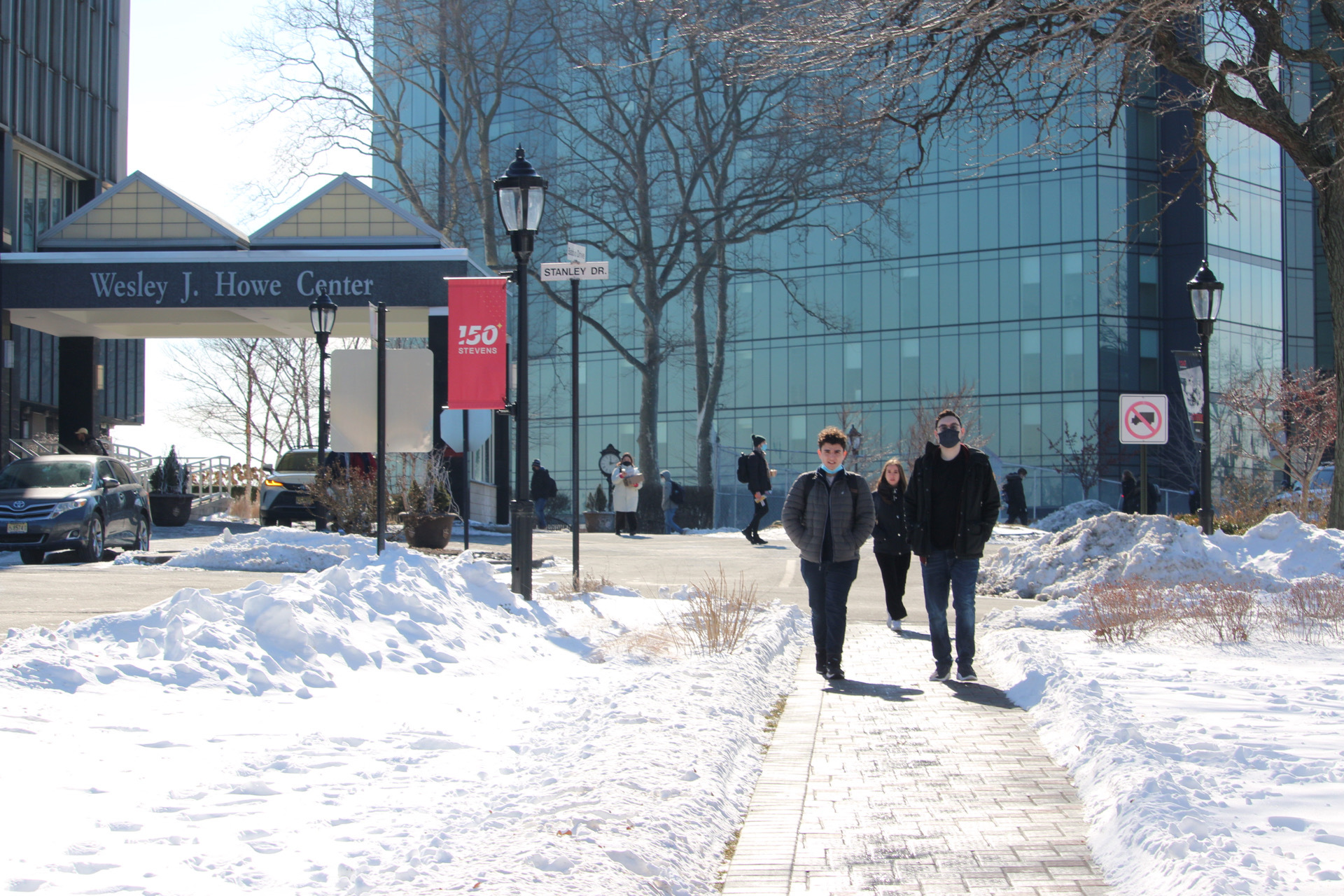Should there still be snow days? Snow days, a childhood rite-of-passage when classes and administrative buildings are closed to severe snow, may not be necessary anymore with widespread access to remote learning. But according to a Stevens administrator, snow days are still useful in severe situations.
On February 4, Stevens moved classes and administrative offices online for one day because the National Weather Service issued a winter weather advisory, warning of freezing rain.
In an exclusive email sent to The Stute this week, Louis Mayer—the university administrator who leads the emergency management team, which decides whether or not to cancel classes in severe weather—said that the one-day shift to remote classes “does not necessarily mean that we will never again have a snow day at Stevens.” Because of the freezing rain on that particular day, he said, the University decided that “a shift to remote operations was appropriate, and it allowed everyone to participate in classes without jeopardizing personal safety.”
The university administrator added: “In the event of a more severe snowstorm, we would consider closing the University in order to allow everyone to benefit from a snow day.”
With remote learning taking over classrooms across the United States, some nearby communities are also reckoning with the need for snow days.
In Buffalo, N.Y., some parents were outraged when the public school district moved classes online for one day so that the district could continue working toward the 180 state-required academic days, according to a February 3 local news article. “We already exhausted our allotted 4 snow days,” said Larry Scott, a member of Buffalo’s board of education. “If not remote days, vacation days would have to be used as school days.”
One Buffalo parent said: “If you’re going to give my son one to two hours of work, I’d rather just have a snow day — it might have been easier.”
In September 2021, the New York City Department of Education announced that the public school system would have no snow days for the entire 2021–2022 academic year, citing the success of remote learning.
“On ‘Snow days’ or days when school buildings are closed due to an emergency, all students and families should plan on participating in remote learning,” the NYC school system said.
When deciding to move classes online at Stevens rather than canceling them outright, Mayer said, the University’s emergency management team considered a variety of factors, including travel safety and faculty availability.
“We had observed that a number of local area K-12 schools announced that they were closing or calling for an early dismissal, which would have impacted the ability of some of our faculty members to come to campus,” said Mayer. “We also considered the number of classes that would be impacted, especially lab courses, which are the most difficult to shift to a remote format. This unusual weather event occurred on a Friday when very few lab courses are scheduled, which allowed for a less disruptive shift to virtual instruction.”
There are no formal policies that determine when the University can call for remote classes over canceling them outright, said the administrator.
“The EMT [emergency management team] convenes to make such decisions on a case-by-case basis each time a significant inclement weather event is predicted. The goal of this group is to maintain optimal levels of safety for all of our students, faculty, and staff, and to make timely decisions, and announce such decisions promptly in order to allow our campus community to make appropriate alternate arrangements,” Mayer said.

Be First to Comment